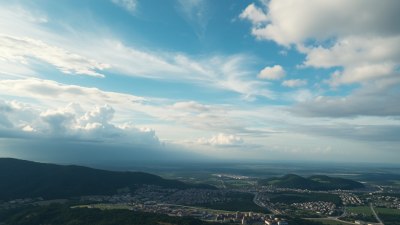When Maps Become Useless and the Sky Takes Over
Explore the future of navigation as we delve into the relationship between technology and nature.

Image created with Flux Schnell
In an age where GPS technology guides us, a paradox emerges: as our reliance on maps grows, we may find ourselves losing the ability to navigate without them. This trend raises the question of what might happen when the technologies we depend on fail us or become obsolete. As we contemplate the future of navigation, we must consider the intriguing possibilities of embracing celestial navigation and the role of the natural world in guiding our journeys.
The Rise of Digital Navigation
Maps have been integral to human civilization for millennia, serving as tools for exploration, trade, and warfare. However, the evolution of technology has transformed how we understand and interact with maps. The advent of digital mapping services, such as Google Maps and Apple Maps, has revolutionized navigation. These tools provide real-time data, satellite imagery, and turn-by-turn directions that simplify our journeys.
Despite their convenience, these digital maps have also led to a growing dependency on technology. While GPS has made navigation easier for many, it has also dulled our innate ability to understand our surroundings and navigate without assistance. Many people now rely entirely on their devices and become disoriented when their paths are not laid out before them. The question looms: what happens when this digital crutch is removed?
Disruptions and Failures
Smartphones and GPS systems are not infallible; they can be rendered useless by a variety of factors. Signal loss due to dense urban environments, weather conditions, or equipment failure can leave users vulnerable in unfamiliar territories. Furthermore, global events like natural disasters, cybersecurity incidents, or physical infrastructure collapse could disrupt these navigation services entirely.
When maps become useless, people may revert to older methods of navigation or, even worse, become completely lost without the comforting glow of a digital interface. This disconnect can create a sense of insecurity that many may not have experienced before. The reliance on devices creates uncertainty and fear when navigating in the absence of connectivity or familiar interfaces.
Returning to Nature
As our dependence on technological systems deepens, we may find ourselves yearning for a connection with the natural world. One emerging perspective advocates for a renaissance of traditional navigation methods that embrace celestial navigation, land features, and natural landmarks. This method is rooted in millions of years of human experience and provides a holistic understanding of our environment.
Observing the sky can lead to an understanding of direction, time, and distance, relying on the movement of the sun, moon, and stars. The ancient mariners and explorers relied upon these celestial bodies to chart their course across the ocean. By learning to interpret the natural world around us, individuals can cultivate a stronger connection to their environment and a greater sense of self-reliance.
Educational Shifts
Incorporating this newfound appreciation for natural navigation into educational curricula could be invaluable. Outdoor education programs, classes that teach map-reading skills, and workshops on telescopic observations could foster an understanding of both the sky and the land we inhabit. This educational shift could nudge society towards a more resilient and resourceful future.
Children would benefit from a richer understanding of geography, and adults could reclaim lost skills that once defined their ancestors. By promoting an ethos of discovery and the importance of nature as a guide, society may becomes more adept at navigating without the anchoring of modern technology.
Environmental Awareness
A focus on natural navigation inherently encourages a respect for the environment. In reconnecting with the earth and the cosmos, people may cultivate a greater appreciation for the sustainability of natural resources. Without maps, we must learn to tread carefully, understanding that our surroundings are an intricate web of ecosystems that must be respected.
Leading workshops on land stewardship alongside navigation techniques can empower individuals to see the broader implications of their journeys. Connecting this knowledge with environmental advocacy can create a generation of explorers who are not just skilled navigators but also passionate stewards of the earth.
Technological Advances and Alternatives
Despite the discussion about moving away from technology, it’s important to remember that our technological advances can also enhance our understanding of navigation. Innovations such as augmented reality and drone mapping can complement ancient practices without entirely replacing them. These technologies can be used to visualize terrain and understand our surroundings while still relying on our instincts and senses.
Imagine an augmented reality system that overlays historical navigation techniques with contemporary geographic information, enabling users to glean insights that simply wouldn’t be possible on a device alone. We can combine the best of both worlds by utilizing technology to enhance rather than solely dictate our navigation experiences.
Global Perspectives
Native cultures worldwide have retained rich traditions that empower their communities to navigate their lands without advanced technologies. By studying their approaches, we can learn valuable lessons in resilience and survival skills. Indigenous techniques often emphasize adaptability to changing environments and an understanding of seasonal changes, which are integral to survival.
As we draw from these traditions, we may not only find effective navigation methods but also cultivate a deeper respect for local cultures and histories. Sharing stories from diverse communities can inspire a movement toward sustainability and a collective call to protect the natural world.
The Future of Navigation
Looking ahead, we stand at a crossroads in navigation. With the advent of increasingly sophisticated technology, personal or communal approaches to navigation will determine how we engage with our environment. If we can strike a balance between digital convenience and our natural instincts, the future of navigation can become more enriching.
The reconciliation of technology and traditional methods can cultivate both skills in self-reliance and an appreciation for the environment. We may envision a society where individuals navigate not only for direction but are also empowered to understand their impact on the world.
As we move to a future that may include a disconnection from our digital maps, we have an opportunity to embrace the knowledge of our predecessors. Navigating by the sky and the land can not only restore lost skills but also create a deeper connection with nature, fostering a compassionate and environmentally aware society. As we take our journeys, let us remember that our paths are intertwined with the ecosystems we inhabit, and in our pursuit of direction, we can find harmony between technology and the natural world.











